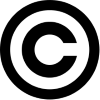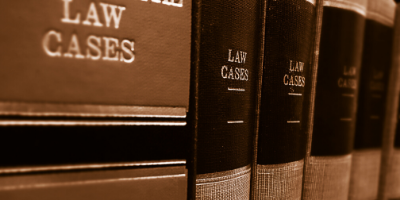Quarterly Journal Volume 52, Issue 1
In This Section
The Quarterly Journal is dedicated to presenting materials relating to intellectual property matters and is published four times per year. Editorial Board members (all of whom are lawyers) are selected based upon demonstrated interest and experience, and student staff members are selected from the students of the GWU Law School.
 QJ 52.1 - The Sincerest Form of Flattery: Plagiarism in a Strange Interstice of Copyright and Antitrust Law, with Special Appearances by Andy Warhol and a Pair of Princes
QJ 52.1 - The Sincerest Form of Flattery: Plagiarism in a Strange Interstice of Copyright and Antitrust Law, with Special Appearances by Andy Warhol and a Pair of Princes
Jared S. Sunshine
Plagiarism has both been hailed as humble homage and denounced as arrant piracy, often in the same breath, dating from its earliest naming by the archetypal victim of plagiarism, the noted epigrammatist Martial. Layered on top of this ambivalence are the strictures of copyright, which both mirror and contrast with plagiarism in crucial ways—and the question of what it means to make “fair use” of a precursor, by transforming it into something new, or otherwise. But plagiarism is also orthogonal to antitrust law, in that a copycat sins most grievously in competing with the author by unfair means, again raising questions of how similar the original and the copy are. Somewhere in interstices of all these overlapping spheres, however, lurks the unifying principle of posterity, as intimated in the recent Supreme Court case of Andy Warhol and his iconic portrait of Prince. Machiavelli said, after all, that to understand the most fundamental things, they must be seen from on high, as a prince.
 QJ 52.1 - Rethinking Section 337: The Case for Removing the Substantial Injury Requirement for Trade Secrets
QJ 52.1 - Rethinking Section 337: The Case for Removing the Substantial Injury Requirement for Trade Secrets
Kaitlyn Iwanowski
To bring a trade secret misappropriation claim in the International Trade Commission (“ITC”), complainants must prove that the alleged misappropriation has the tendency or effect to substantially injure a domestic industry. The ITC’s “substantial injury” requirement for trade secret claims is burdensome to prove and expensive to litigate. Congress removed this requirement for statutory intellectual property in 1988. Trade secrets, however, were not statutory in 1988 and, therefore, still to this day have the “substantial injury” requirement. Because trade secret law is now statutory due to the Defend Trade Secrets Act of 2016, Congress should amend Section 337 to give trade secrets its own provision and, therefore, remove the difficult-to-prove and expensive-to-litigate “substantial injury” requirement.
 QJ 52.1 - What is Fair?: Why Fair Use Should be Reevaluated as a Defense to Copyright Infringement
QJ 52.1 - What is Fair?: Why Fair Use Should be Reevaluated as a Defense to Copyright Infringement
Tess Toland
This Note explores how the United States’ implementation of a subjective fair use defense to copyright infringement has led to disparity between courts in their evaluation of copyright infringement suits, confusion about the standards implemented and subjective factors evaluated when a fair use defense is invoked, and inequity in outcomes for parties with unequal bargaining power. This Note argues that the fair use defense’s four subjective factors should be reevaluated and replaced with a series of concrete, objective standards modeled after the European Union’s Information Society Directive. Section II.A examines the origins of fair use as a defense to copyright infringement. Section II.B lays out the current U.S. law on invoking the fair use defense. Section II.C argues that the fair use defense is too open-ended and too context-sensitive as it stands in the United States today, looks specifically at the first fair use factor set forth by Section 107 of the Copyright Act of 1976, and explains why it is the most subjective and therefore, the most problematic. Section II.D looks to European Union copyright law for a solution to the problems set forth in the former sections. Finally, Part III proposes specific amendments to Section 107 of the Copyright Act, eliminating the subjectivity of the fair use defense, reshaping fair use to specifically target its original purpose, and tailoring the new Section 107 towards equally protecting both established artists and unestablished artists, who lack a voice and significant bargaining power in the art world.
 QJ 52.1 - Closing the Floodgates on 3D Printing Copyright Infringement
QJ 52.1 - Closing the Floodgates on 3D Printing Copyright Infringement
Morris Young
Upcoming Events
-
.png?sfvrsn=48c235e_1) 2026 Patent Prosecution Bootcamp - Arlington, VA
2026 Patent Prosecution Bootcamp - Arlington, VA
March 4 to 6, 2026 | Up to 1195 minutes, including 60 Ethics minutes
-
 AIPLA CLE Webinar: Damages 2025 Year-in-Review: Lessons and Litigation Strategies
AIPLA CLE Webinar: Damages 2025 Year-in-Review: Lessons and Litigation Strategies
March 11, 2026 2:00 PM to 3:30 PM | Eligible for up to 90 Mins CLE
-
.png?sfvrsn=20d96f46_1) AIPLA LinkedIn Live: What the 2025 AIPLA Economic Survey Reveals About IP Practice Today
AIPLA LinkedIn Live: What the 2025 AIPLA Economic Survey Reveals About IP Practice Today
March 12, 2026 12:00 PM to 12:45 PM
-
2026 Women in IP Global Networking Event
April 16, 2026
The annual Global Networking Event connects intellectual property practitioners from around the world for a day of networking, education, and creating meaningful connections. This year’s theme, Rooted in Real - Women in IP Redefining the Narrative, is an opportunity for the AIPLA Women in IP Law Committee to celebrate authentic experiences, foster genuine connections, and showcase the real stories of women shaping the field of intellectual property law. -
-(1).png?sfvrsn=169c8b82_1) Careers in IP
Careers in IP
April 22, 2026 12:30 PM to 1:30 PM | No CLE

